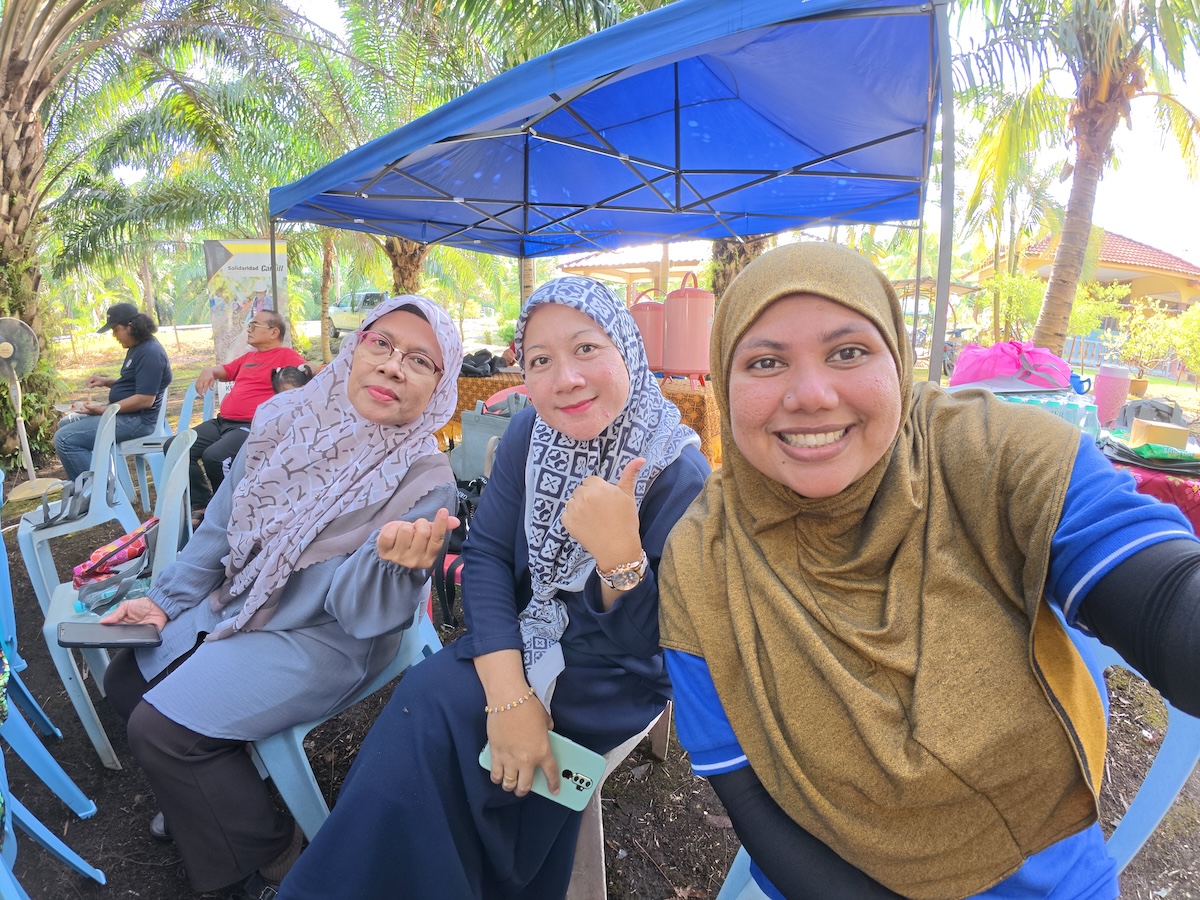Malaysian palm oil producers Siti Haljiah Jamil, Ouzinani Ahmad (left) with Yasmin Nur Khadijah of Solidaridad Malaysia join other smallholders a learning session with Solidaridad’s Smallholder Support Programme (SSP)
Building trust is key to the successful adoption of new practices, as change can be challenging for farmers who have done things a certain way for a long time. Yasmin goes out of her way to help smallholders improve, whether by sharing how to apply fertilizer at the right time or getting their paperwork to comply with government requirements. The commitment of Yasmin and others at Solidaridad Malaysia is paying off as interest among farmers has grown rapidly, surpassing programme targets by 38%.
Yasmin’s story is just one example of the joint work that is being done as part of Cargill’s 3-year, $4.6 million partnership with Solidaridad that launched in July 2023. The partnership aims to improve farmer livelihoods and sustainable land use, and support climate-smart agriculture in soy and palm oil supply chains across Argentina, Bolivia, Colombia, Malaysia, and Paraguay.
The partnership is focused on three key areas:
- Climate: Supporting farmers to improve their practices through innovative approaches like regenerative agriculture and supporting smallholder farmers to better measure their greenhouse gas emissions (GHG).
- Land use: Promoting responsible land management practices to conserve natural resources and help ensure the sustainable production of soy and palm oil.
- Farmer livelihoods: Empowering farmers with training, resources, and market access to improve their productivity, income, and overall well-being.
“Together with Solidaridad, we’re empowering farmers through holistic support that advances Cargill’s impact goals and connects them to vital markets,” says Taryn Davis, Senior Director, Strategic Partnerships & Stakeholder Engagement at Cargill.
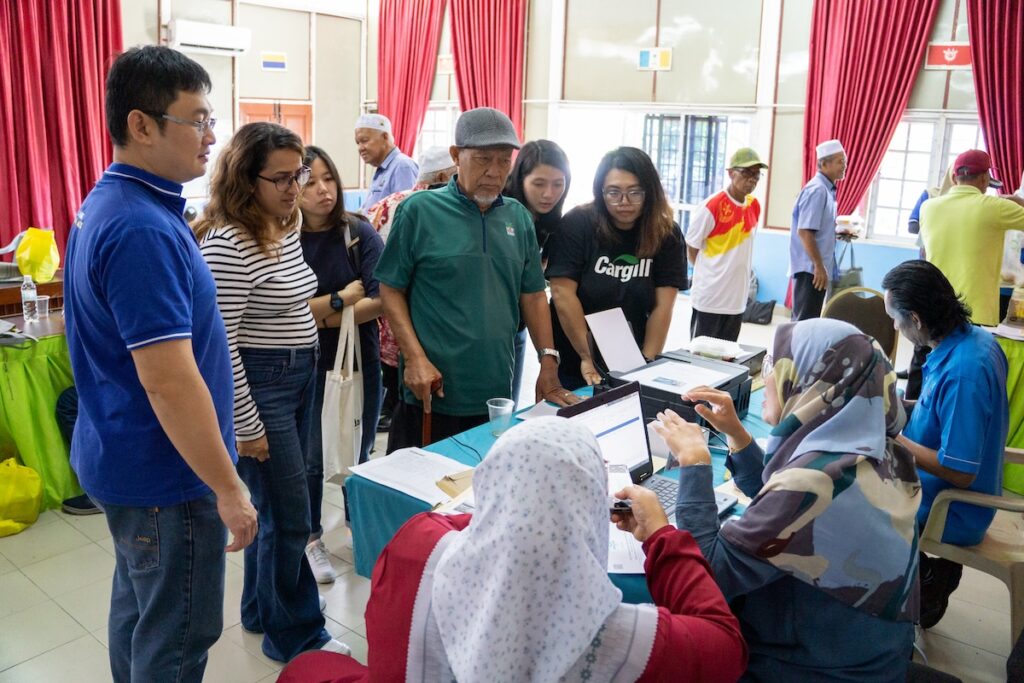
Powering sustainable agriculture with knowledge and data
Digital tools and training are a core component of the partnership’s effort to equip farmers with the knowledge and skills they need to adopt sustainable practices. In Bolivia, Colombia and Paraguay, Solidaridad’s digital tools, Extension Solution and Agrolearning, are being deployed to collect data, provide guidance on good agricultural practices (GAP), and monitor implementation. The combined use of Extension Solution and Agrolearning with soybean farmers in Paraguay was instrumental for developing individually-customized training based on farmers’ performance.
In Colombia, the team developed a dashboard to track practices among palm oil producers based on data collected through a sustainability index that assesses economic, social, and environmental performance. This real-time monitoring tool enables data-driven decision-making and facilitates continuous improvement.
The use of digital tools to collect and process farmers’ data requires striking a balance between privacy and security, and the need for usable insights to inform decision-making and contribute to development objectives. Solidaridad’s digital teams and Cargill data protection and IT security experts are collaborating to adapt and implement the protocols and controls needed to ensure the proper protection of farmers’ data, while effectively utilizing the data for the project and for farmers.
“Aligning our practices to the cybersecurity standards required by private sector partners not only strengthens our ability to protect data assets and mitigate growing IT risks, it also helps us work better together and create the conditions that deliver value to farmers who contribute their data.”
Violaine Laurens, Solidaridad Latin America’s Digital Unit Manager.
Supporting climate-friendly agriculture
In the countries where the Cargill-Solidaridad partnership operates, there is an urgency to support farmers as they adopt climate-friendly agricultural practices to adapt to and mitigate the impacts of climate change impacts.
In Colombia, the team is focused on advancing climate-friendly farming practices that can build resilience and improve the livelihoods of small- and medium-sized oil palm farmers. This includes calculating producers’ greenhouse gas emissions, studying wastewater treatment systems for palm oil mills, and supporting good agricultural practices that can help farmers improve productivity and income.
In Malaysia, the partnership conducted a sustainability assessment of 50 smallholders, gathering baseline data on their yield, income, and adoption of good agricultural practices (GAPs). Smallholders in the programme stand in contrast to the perception of large-scale palm producers that are prominent in the area.
- The average smallholder manages 1.28 hectares of oil palm; roughly half of them work less than one hectare.
- The majority rely on palm oil as their main source of income, with most smallholders earning roughly 50 % lower than the national poverty line.
Solidaridad provided training on sustainable production practices to 421 smallholders, 34.2% of whom are women. Given the interest generated among smallholders, the partnership shows strong potential for improving environmental and livelihood performance in farming communities.
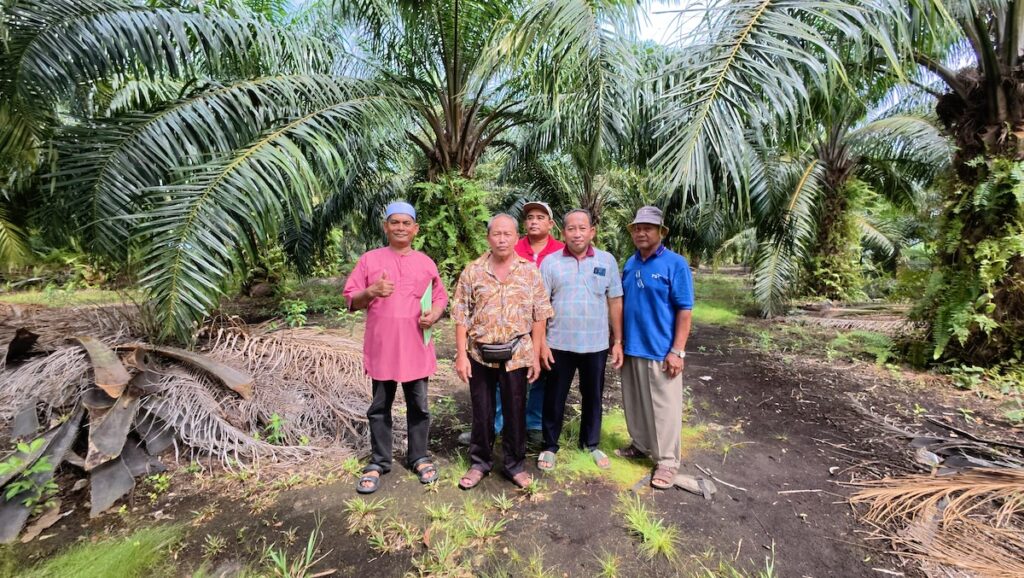
Advancing responsible land management
Responsible land use and management is an important component of the partnership’s work to conserve natural resources and ensure the long-term sustainability of soy and palm oil production, and the local environment.
In Argentina, the partnership worked with local governments to strengthen land-use monitoring capabilities and create an accessible tool for all stakeholders. The team collaborated with environmental authorities to develop and implement the Native Forest Viewer, a land-use change monitoring tool designed to help monitor compliance with Argentina’s National Forestry Law. This tool, built on data transparency and accountability, is crucial to ensuring the sustainable management of Argentina’s valuable forest resources.
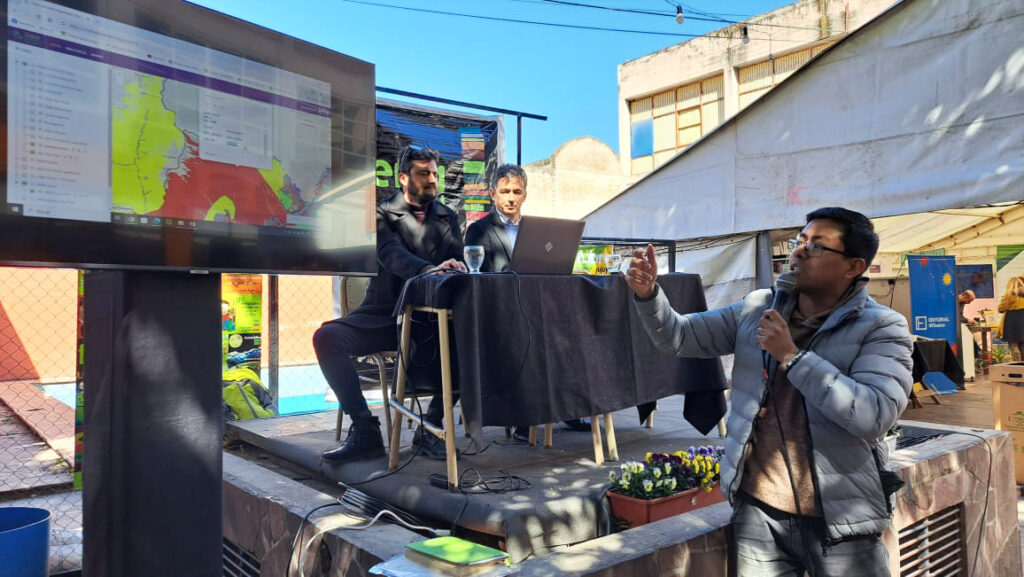
“The Viewer strengthens environmental governance in the province, and supports the policy of conservation and sustainable use of native forests.”
María Inés Zigarán, the Minister of Environment and Climate Change in Jujuy.
Lessons Learned and the Path Forward
Moving forward, the partnership is building on the successes and learnings of the first year. Producers are growing their capacity to implement climate-smart and safe practices on their farms with the goal of sustainable production that provides for decent livelihoods and conservation of natural resources.
“No farmer wants to do things the wrong way, he thinks that the way he does things is always right, but projects like this one mark a clearer line [of how to do things right]. As technology advances, practices will also have to improve,” said Marcelo Wiest, a soy producer from Paraguay enrolled in 3S, Cargill’s Sustainably Sourced and Supplied programme.
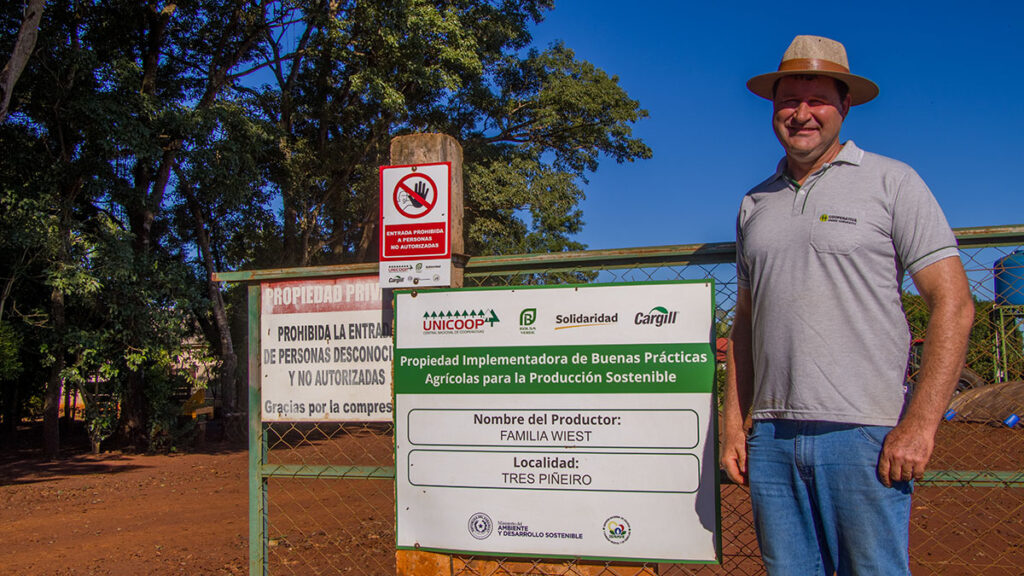
Read more of the highlights from the partnership in the following articles:

